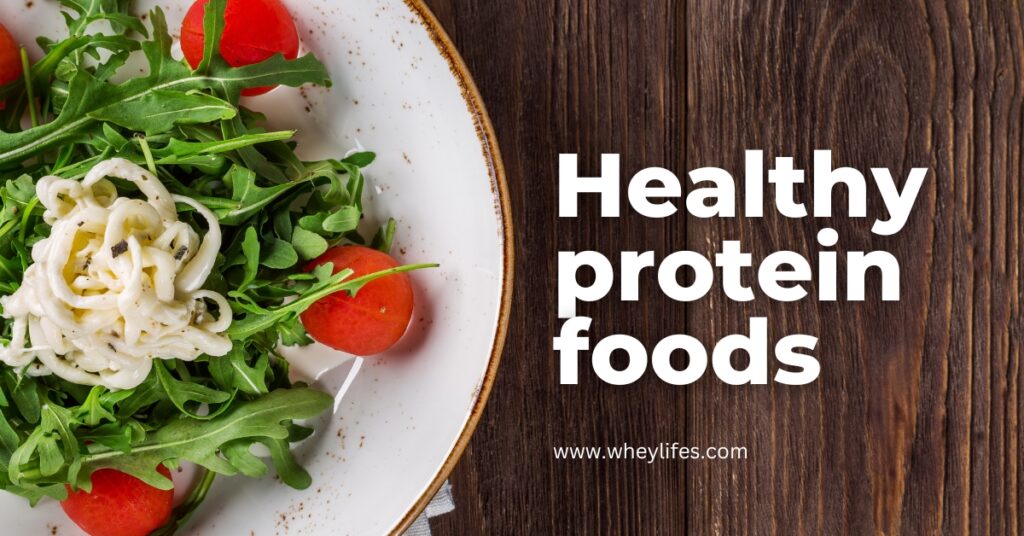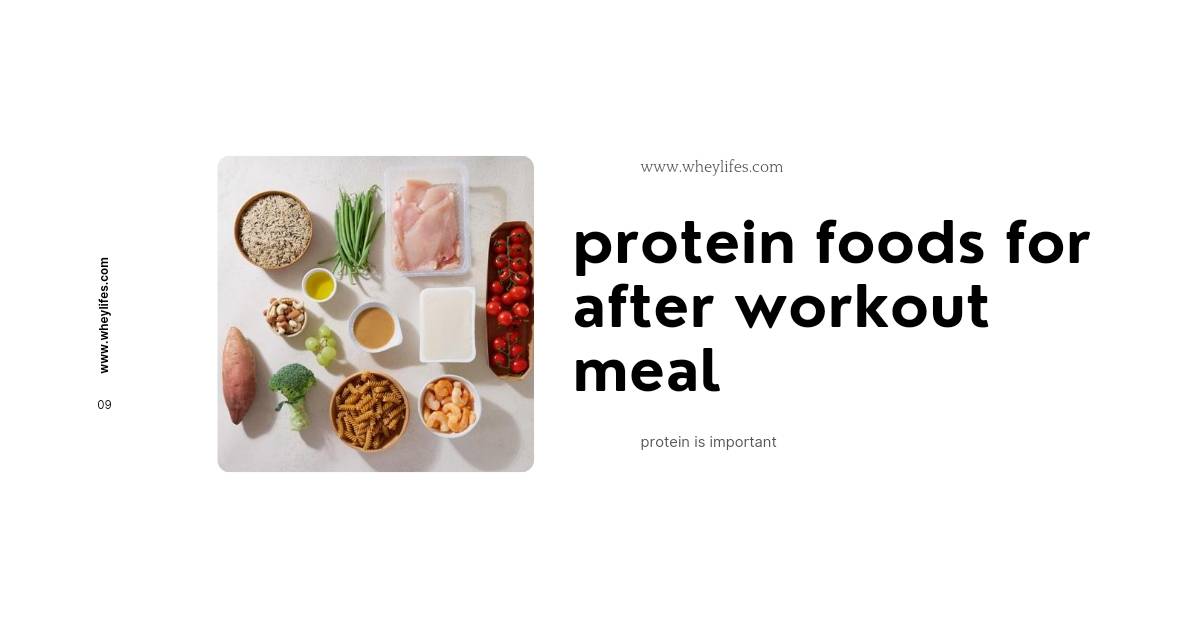Protein is the main factor for muscle growth, repair, and maintenance of the body. In India, finding high-quality protein foods is not very difficult, but this article will help you find the right protein foods for your muscles and body, whether you are a non-vegetarian or a vegetarian.
Table of Contents

Soy Chunks
A favourite protein source for vegetarians. Soya chunks are low in fat and carbohydrates and rich in essential amino acids, fibre, calcium, and iron. Soychunks, also known as textured vegetable protein, are versatile and highly nutritious. Soy flour defatted is used to make them.
Soy chunks are produced from soybeans. The leftover soy flour from de-oiled soybeans is processed into various shapes and sizes to make soy chunks, offering a protein content of 50–52%. Soy chunks are a popular choice to include in meals to meet daily protein requirements.
Paneer
Paneer is a dairy product that is a staple in the diets of South Asian countries. Paneer, also known as South Asian cheese, is made from milk with food acids such as lemon juice and vinegar. Paneer is an essential ingredient in both vegetarian and non-vegetarian dishes.
Cheese is made using rennet, or bacterial cultures, which takes a long time, but paneer is unique in that it can be made quickly at home.
Paneer is nutritious and high in calcium and protein, making it a good option for vegetarians to meet their daily protein requirements.
Spirulina
Spirulina is a popular dietary supplement known for its excellent nutritional profile and numerous health benefits. Spirulina is high in protein and contains all the essential amino acids. Spirulina is rich in vitamins B1, B2, B3, B6, B9, C, D, A, and E and minerals, including potassium, calcium, magnesium, and iron. It contains antioxidants that help reduce the risk of chronic diseases like heart disease and cancer.
Improved endurance and muscle strength can be achieved with the use of spirulina, as well as its high protein content and ability to reduce exercise-induced oxidative damage, so it is used to achieve improvements in fitness and athletes.
ChickPeas
Chickpeas are a source of protein and packed with dietary fiber. A nutritional powerhouse, chickpeas can help increase protein intake without relying on animal products. Including chickpeas in the diet is good for weight control and diabetics.Antioxidants in chickpeas can help reduce oxidative stress and inflammation.
Besides protein, it also contains magnesium, B vitamins, iron, and potassium. Chickpeas are good for reducing the risk of cancer and heart disease.
HorseGram
Horse gramme is a lesser-known legume. Horse gramme also contains vitamins, dietary fibre, and minerals like calcium, phosphorus, and iron. It can be included in a bodybuilding diet as it provides essential amino acids that are crucial for muscle repair, growth, and overall body function. It contains fibre, which improves digestion. As it helps control blood sugar levels, it is beneficial for diabetics.Its nutrient density and health benefits make it an indispensable addition to the diet.
Chicken Breast
Chicken breast is an excellent source of protein, making it a favourite protein food for athletes and bodybuilders alike. The protein provided by chicken breast helps in muscle repair and growth.What is special about chicken breast is that the protein contained in it provides the body with nine essential amino acids, An essential amino acid is one that the body cannot manufacture on its own.
It contains significant amounts of B vitamins, especially niacin (B3) and pyridoxine (B6), and is also rich in many essential vitamins and minerals.
Chicken breast also contains important minerals such as the antioxidant selenium, which plays a role in supporting the immune system and protecting cells from damage. It can be included in ketogenic and low-carb diets because of its low carbohydrate content.
Raggi (Finger Millet)
Ragi contains essential amino acids, including methionine, which are limited in other grains. Ragi is rich in protein and nutrients like dietary fibre, calcium, iron, etc.; inclusion of ragi in the diet will play an important role in maintaining the health of the body.
Including ragi in the diet helps to meet protein requirements while providing other essential nutrients to the body.
Fish
Fish protein is easily digested by the human body. All the amino acids needed by human body tissues can be obtained by including fish in the diet.Fish is an excellent source of omega-3 fatty acids, which are essential for heart health. Omega-3 fatty acids also support brain health and reduce the risk of neurological disorders.
Fish is full of minerals and vitamins the body needs, including B vitamins and vitamin D for energy production and overall metabolism.
Regular consumption of fish provides the body with the protein it needs, better brain function, and better heart health.
Eggs
Eggs are a source of high-quality protein. Eggs contain nine essential amino acids. Choline, selenium, vitamin B12, and vitamin D are vitamins and minerals found in eggs. The protein obtained from it is essential for muscle repair and growth.Choline helps protect brain health, and the antioxidants zeaxanthin and lutein support eye health.
Greek Yogurt
The protein in Greek yoghurt helps with muscle repair, growth, and overall body function. Greek yoghurt is a source of probiotics, which are bacteria that help improve digestion and gut health. It contains nutrients like vitamin B12 and calcium.
Greek yoghurt has weight-management capabilities and is lower in sugar and carbohydrates than regular yoghurt.
Cheese
Produced from milk, cheese is a rich source of high-quality protein, a nutrient-dense product that provides many health benefits to the body, including muscle repair and growth.
Apart from protein, cheese also contains important nutrients such as riboflavin, phosphorus, vitamin A, vitamin B12, and zinc. Cheese contains healthy fats that provide health benefits such as improving heart health and reducing inflammation. Cheese should be consumed in moderation, as it is high in sodium and saturated fat, and eating too much cheese can lead to health problems such as heart disease.
Black Beans
Black beans are an excellent source of protein, and their high protein content aids in muscle growth and repair. Black beans are rich in iron, dietary fibre, essential vitamins, and minerals like magnesium and folate. Black beans are rich in antioxidants, and the substance that gives them their black colour helps to prevent free radicals in the body. Regular consumption can help lower cholesterol levels, which helps protect the heart and keep it healthy.
Kidney Beans
Rich in nutrients like manganese, phosphorus, iron, and fibre, kidney beans are an excellent source of protein. It can be included in the diet along with other protein foods to get the daily protein intake. It helps support muscle maintenance and overall physical function. Its fibre promotes digestive health, and kidney beans have a low glycemic index, which helps regulate blood sugar levels. They are rich in antioxidants and can prevent many diseases.
Black Eyed Peas
A moderate amount of protein in black-eyed peas can help support muscle growth and repair. Minerals and vitamins such as iron, potassium, folate, and dietary fibre are obtained from it. Its ability to lower cholesterol levels helps reduce the risk of heart disease.
Tofu
Tofu is made from soybeans; it contains excellent protein, and nutritious tofu provides the body with nine essential amino acids. It contains magnesium and calcium and does not contain cholesterol, which keeps the heart healthy.Tofu has a high iron content, which increases red blood cells, which helps with energy levels.
Protein in Nuts And Seeds
Peanuts
Rich in healthy fats, peanuts are a great source of protein and provide the body with essential antioxidants and vitamin E and B complex. Including peanuts in the diet can help control weight and protect heart health.
Almonds
Almonds contain vitamin E, which supports immune function and skin health. Almonds are indispensable in a protein diet as they are an excellent source of protein and help with weight control and blood sugar control.
Flax Seed
Flaxseeds contain omega-3 fatty acids, are an excellent source of protein, and contain lignans, which help reduce the risk of cancer. Digestion, weight control, and heart health can be achieved by consuming this seed.
Chia Seed
Chia seeds are packed with protein and heart-healthy omega-3 fatty acids. As it contains fibre, it helps in digestion, and it also provides good antioxidants to the body.
All Food Items Protein Content Tables
Protein per 100g in Soy products
| Food Item | Protein Content (per100g) |
| soy chunks | 50-52g |
| Tofu | 8g |
Protein per 100g in Diary Products
| Food item | Protein content (per 100g) |
| Paneer | 18g |
| Cheese | 25g |
| Greek Yogurt | 10g |
Protein per 100g in Legumes And Beans
| Food item | Protein content (per 100g) |
| Chick peas | 19g |
| Horse gram | 22g |
| Black beans | 21g |
| Kidney beans | 24g |
| Black eyed peas | 8g |
Protein Per 100g in Animal Products
| Food item | Protein content (per 100g) |
| Chicken Breast | 31g |
| Fish | 20g |
| Eggs | 13g |
Protein Per 100g in Seeds And Nuts
| Food item | Protein content (per 100g) |
| Peanuts | 26g |
| Flax seed | 18g |
| Chia seed | 17g |
| Almonds | 21g |
Protein Per 100g in Supplement
| Food item | Protein content (per 100g) |
| Spirulina | 57g |
Protein per 100g in Grains
| Food item | Protein content (per 100g) |
| Raggi | 7.3g |
Including Protein in Your Diet
Protein Break Fast
Breakfast should be full of protein; for this, you can include eggs, whey protein, and a smoothie with nuts and fruits.
Protein Snacks
As a healthy and protein-rich snack, eat nuts, seeds, or cooked lentils.
A balanced Diet
Make sure to include lentils, chicken, fish, and paneer in a balanced daily diet.
Conclusion
Protein is an essential element that a healthy body needs every day, so make sure to include protein in your daily diet.
There are many protein-rich foods available in India to meet your protein needs. Whether you are a non-vegetarian or a vegetarian, here you can choose tasty and nutritious protein-rich foods to include in your diet.
